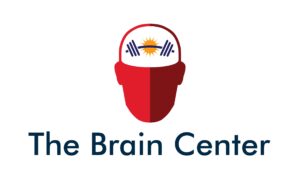Valuing Mental Health as Part of Overall Well-Being
Story & Photography Provided
What do you think of when you hear “health and wellness?” The concepts of health, our mental or physical condition, and wellness, a state of being in good health, often bring about thoughts of physical fitness or ability. However, cognitive, emotional and sensory aspects of being well can be just as impactful on our day-to-day living.
Our current state of health, in all areas, affects our ability to manage our routine responsibilities, including the act of driving. Driving has many health benefits, including improving mental health by reducing stress and anxiety, allowing a sense of control and freedom over one’s environment, and establishing a sense of worth. Additionally, having to manage multi-limb coordination, multitasking, and functional memory allows for the development of neuroplasticity.
As we age or experience different medical events, our state of health may change. A stroke may affect our ability to move one side of the body or use proper judgment and reasoning when managing rules of the road.
Glaucoma or macular degeneration may affect our central or peripheral vision, making visual scanning of an environment more difficult. Alzheimer’s disease or dementia may affect our ability to remember a routine route from our home to the grocery or a loved one’s home. Parkinson’s disease may affect our ability to get in and out of the car safely or respond quickly at intersections. Certain medications may also impact safety due to common side effects causing dizziness, excessive sleepiness, blurred vision or confusion. Each medical diagnosis has its own characteristics and impacts on driving.
 Driving is a complex skill and, with health changes, an individual may begin to experience difficulty behind the wheel. A comprehensive occupational therapy driving evaluation can help answer questions related to driving safety. This is accomplished by evaluating an individual’s physical, mental and emotional skills needed for safe driving.
Driving is a complex skill and, with health changes, an individual may begin to experience difficulty behind the wheel. A comprehensive occupational therapy driving evaluation can help answer questions related to driving safety. This is accomplished by evaluating an individual’s physical, mental and emotional skills needed for safe driving.
The driving evaluation consists of two parts: in-clinic and behind-the-wheel assessments. The in-clinic assessment reviews skills such as reaction time, range of motion, mobility, visual processing speed, divided attention, and memory. These abilities are correlated with driving safety. A behind-the-wheel assessment demonstrates how the patient manages all of those previously assessed skills, to safely manage intersections, right and left turns, lane stability, and lane changes in varying road and weather conditions.
Following a driving evaluation, a certified driver rehabilitation specialist will make recommendations, which may include continuation of driving without modification, modification of driving times (avoiding rush hour, night driving and interstate driving, etc.), participation in training with vehicle modifications (hand controls, steering devices or left-foot accelerator), and/or potentially discussion of alternate transportation options if driving is not considered a safe option at that time.
If you have further questions or are interested in participating in a driving evaluation, please contact Sherrie Waugh, MOT, OTR, CDRS, at The Brain Center, at sherrie.waugh@braincenterindy.com or 317-562-0942.






